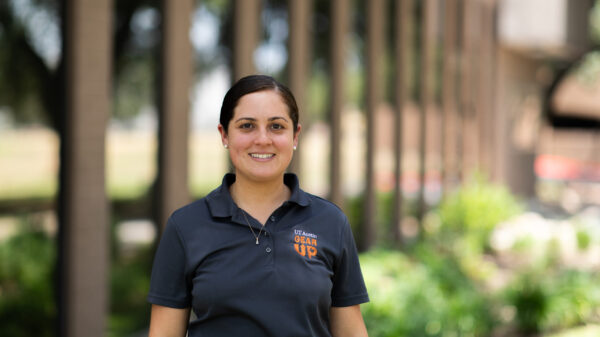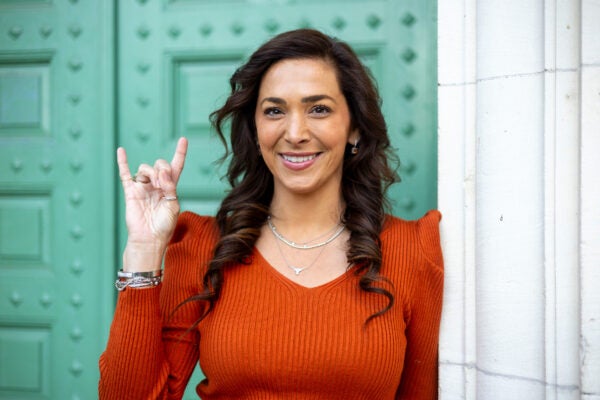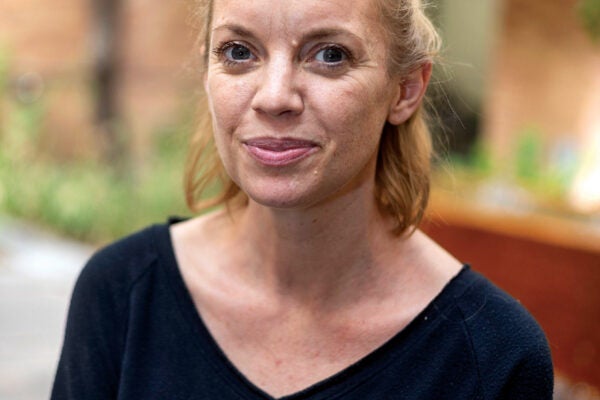Connie Dawes has a passion for helping high school students. After graduating from the University of Virginia, she worked for the College Advising Corps, which placed recent graduates in rural high schools where the rates of students going to college were below the state average. Those peer advisers would walk students through general admissions applications, the application for federal student aid, and college essays. Dawes served as assistant director, providing support and outreach to Advising Corps chapters across the country who were doing this work.
She came to The University of Texas in 2010 to work for Advise TX, a chapter of the national College Advising Corps, and helped scale the program to three other universities around the state.
Her experiences led her to adopt the mantra: “Of those to whom much is given, much is expected.” Dawes believes that supplying students with resources begins a chain reaction of benefits that lifts the individual and that the subsequent growth and change extend beyond that one person. She decided to devote herself to this work and saw that mental health support for students was a crucial piece of the process.
The Institute for Public School Initiatives (IPSI) within the College of Education aims to help more low-income high school students get into and succeed in college. In fall 2022, it approached telehealth provider MDLIVE about a partnership to offer online mental health resources to public schools across Texas. The program launched in late February 2023, and Dawes now oversees the initiative.

The program is funded and housed under a seven-year federal grant, GEAR UP — Gaining Early Awareness and Readiness for Undergraduate Programs. The grant serves low-income middle and high school students through encouragement, assistance and preparation for higher education. From now until 2029, IPSI plans to follow the enrolled seventh and eighth graders throughout the rest of their public school education and into their first year of college, making mental health services always available.
“Now more than ever, we know our (high school and middle school) students need that help with mental health issues,” says Dawes, director of the UT Austin Reset and Reimagine GEAR UP partnership grant.
School districts with at least 50% of their students on free or reduced lunch are eligible to participate in the program. However, many selected schools surpass that threshold, with 70% or more students eligible. The school districts involved are Coldspring-Oakhurst, Jasper, Lufkin, Port Arthur, Del Valle and San Marcos.
Most of the selected districts are in rural areas, meaning access to mental and behavioral health care can be minimal, especially with the increased demand for these services in recent years. Because of this, the program offers students access to support they may never have had otherwise.
MDLIVE created a website for GEAR UP students to make access easier, says Chelsea Fernandez, senior program manager at IPSI. Once registered on the website, students can select from the hundreds of therapists that MDLIVE employs based on their needs, language preferences and availability. After selecting a provider, they can schedule a session anytime.

“If you’re not healthy, it’s hard to do your best,” Dawes says.
Originally intended to launch last fall, the program was pushed out to students in a just few days during spring 2023. After the tragic death of a student on one of the San Marcos middle school campuses on a Friday, MDLIVE had the program ready for use by the next Monday.
After the successful launch of their services for sixth and seventh grade students under the new GEAR UP grant, IPSI and MDLIVE opened services to their 2017 grant members, students who are now in their first year of college.
IPSI plans to continue adding other grant programs to the partnership to expand mental health services.
“I hope that (the services) bring much more awareness to the issue,” Fernandez says. “I hope it breaks some negative or inaccurate stigma or misconceptions about mental health. I hope it normalizes mental health, and I hope it just helps. I hope it just helps our kids.”



